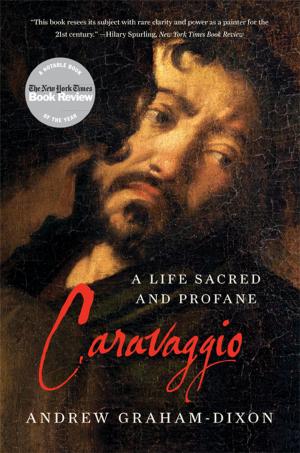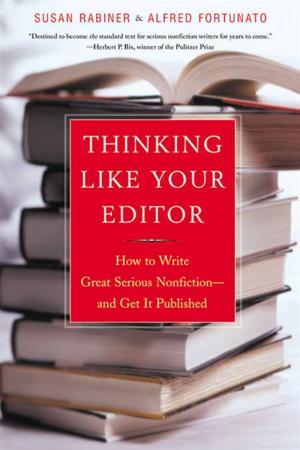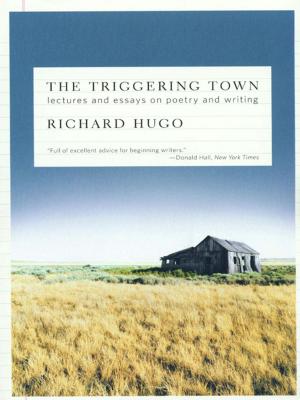Ethan Allen: His Life and Times
Nonfiction, History, Americas, United States, Colonial Period (1600-1775), Biography & Memoir, Historical| Author: | Willard Sterne Randall | ISBN: | 9780393082289 |
| Publisher: | W. W. Norton & Company | Publication: | August 22, 2011 |
| Imprint: | W. W. Norton & Company | Language: | English |
| Author: | Willard Sterne Randall |
| ISBN: | 9780393082289 |
| Publisher: | W. W. Norton & Company |
| Publication: | August 22, 2011 |
| Imprint: | W. W. Norton & Company |
| Language: | English |
The long-awaited biography of the frontier Founding Father whose heroic actions and neglected writings inspired an entire generation from Paine to Madison.
On May 10, 1775, in the storm-tossed hours after midnight, Ethan Allen, the Revolutionary firebrand, was poised for attack. With only two boatloads of his scraggly band of Vermont volunteers having made it across the wind-whipped waters of Lake Champlain, he was waiting for the rest of his Green Mountain boys to arrive. But with the protective darkness quickly fading, Allen determined that he hold off no longer.
While Ethan Allen, a canonical hero of the American Revolution, has always been defined by his daring, predawn attack on the British-controlled Fort Ticonderoga, Willard Sterne Randall, the author of Benedict Arnold, now challenges our conventional understanding of this largely unexamined Founding Father. Widening the scope of his inquiry beyond the Revolutionary War, Randall traces Allen’s beginning back to his modest origins in Connecticut, where he was born in 1738. Largely self-educated, emerging from a relatively impoverished background, Allen demonstrated his deeply rebellious nature early on through his attraction to Deism, his dramatic defense of smallpox vaccinations, and his early support of separation of church and state.
Chronicling Allen’s upward struggle from precocious, if not unruly, adolescent to commander of the largest American paramilitary force on the eve of the Revolution, Randall unlocks a trove of new source material, particularly evident in his gripping portrait of Allen as a British prisoner-of-war. While the biography reacquaints readers with the familiar details of Allen’s life—his capture during the aborted American invasion of Canada, his philosophical works that influenced Thomas Paine, his seminal role in gaining Vermont statehood, his stirring funeral in 1789—Randall documents that so much of what we know of Allen is mere myth, historical folklore that people have handed down, as if Allen were Paul Bunyan.
As Randall reveals, Ethan Allen, a so-called Robin Hood in the eyes of his dispossessed Green Mountain settlers, aggrandized, and unabashedly so, the holdings of his own family, a fact that is glossed over in previous accounts, embellishing his own best-selling prisoner-of-war narrative as well. He emerges not only as a public-spirited leader but as a self-interested individual, often no less rapacious than his archenemies, the New York land barons of the Hudson and Mohawk Valleys.
As John E. Ferling comments, “Randall has stripped away the myths to provide as accurate an account of Allen’s life as will ever be written.” The keen insights that he produces shed new light, not only on this most enigmatic of Founding Fathers, but on today’s descendants of the Green Mountain Boys, whose own political disenfranchisement resonates now more than ever.
The long-awaited biography of the frontier Founding Father whose heroic actions and neglected writings inspired an entire generation from Paine to Madison.
On May 10, 1775, in the storm-tossed hours after midnight, Ethan Allen, the Revolutionary firebrand, was poised for attack. With only two boatloads of his scraggly band of Vermont volunteers having made it across the wind-whipped waters of Lake Champlain, he was waiting for the rest of his Green Mountain boys to arrive. But with the protective darkness quickly fading, Allen determined that he hold off no longer.
While Ethan Allen, a canonical hero of the American Revolution, has always been defined by his daring, predawn attack on the British-controlled Fort Ticonderoga, Willard Sterne Randall, the author of Benedict Arnold, now challenges our conventional understanding of this largely unexamined Founding Father. Widening the scope of his inquiry beyond the Revolutionary War, Randall traces Allen’s beginning back to his modest origins in Connecticut, where he was born in 1738. Largely self-educated, emerging from a relatively impoverished background, Allen demonstrated his deeply rebellious nature early on through his attraction to Deism, his dramatic defense of smallpox vaccinations, and his early support of separation of church and state.
Chronicling Allen’s upward struggle from precocious, if not unruly, adolescent to commander of the largest American paramilitary force on the eve of the Revolution, Randall unlocks a trove of new source material, particularly evident in his gripping portrait of Allen as a British prisoner-of-war. While the biography reacquaints readers with the familiar details of Allen’s life—his capture during the aborted American invasion of Canada, his philosophical works that influenced Thomas Paine, his seminal role in gaining Vermont statehood, his stirring funeral in 1789—Randall documents that so much of what we know of Allen is mere myth, historical folklore that people have handed down, as if Allen were Paul Bunyan.
As Randall reveals, Ethan Allen, a so-called Robin Hood in the eyes of his dispossessed Green Mountain settlers, aggrandized, and unabashedly so, the holdings of his own family, a fact that is glossed over in previous accounts, embellishing his own best-selling prisoner-of-war narrative as well. He emerges not only as a public-spirited leader but as a self-interested individual, often no less rapacious than his archenemies, the New York land barons of the Hudson and Mohawk Valleys.
As John E. Ferling comments, “Randall has stripped away the myths to provide as accurate an account of Allen’s life as will ever be written.” The keen insights that he produces shed new light, not only on this most enigmatic of Founding Fathers, but on today’s descendants of the Green Mountain Boys, whose own political disenfranchisement resonates now more than ever.















